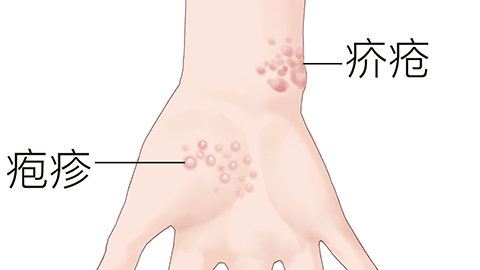How to treat scabies彻底?
Generally speaking, there is no such thing as "how to completely cure scabies." The main treatments for scabies include isolation treatment, topical medication therapy, oral medication therapy, symptomatic anti-itch treatment, and simultaneous treatment for close contacts. The detailed analysis is as follows:
1. Isolation Treatment
Patients with scabies should undergo isolation treatment to reduce the risk of infection. Clothes, bedding, towels, and other items used by the patient should be disinfected at high temperatures or exposed to sunlight to completely kill the scabies mites. At the same time, family members, friends, and others who have had close contact with the patient should also undergo examination and treatment to prevent cross-infection.

2. Topical Medication Treatment
Topical medication is the core treatment method for scabies, killing scabies mites directly by applying medication on the skin. Patients can use medications such as sulfur borax cream or crotamiton cream as directed by a physician. These medications can penetrate the skin's stratum corneum, act on the nervous system or cell membranes of the scabies mites, and destroy their physiological structure, thereby effectively killing both adult mites and eggs.
3. Oral Medication Treatment
For patients who do not respond well to topical medications, have extensive skin lesions, or have special circumstances, oral medication treatment can be adopted. Patients can take medications such as ivermectin tablets, levocetirizine dihydrochloride tablets, or ephedrine hydrochloride capsules as directed by a physician. Ivermectin interferes with neurotransmitter transmission in scabies mites, leading to paralysis and death; the latter two medications are antihistamines that help relieve the intense itching caused by scabies.
4. Symptomatic Anti-itch Treatment
Symptomatic anti-itch treatment can alleviate itching caused by scabies and improve the patient's quality of life. In addition to oral antihistamines, patients can also use topical preparations such as calamine lotion or menthol ointment under a physician's guidance. Calamine lotion can soothe the skin and reduce itching, while menthol ointment can temporarily relieve itching through a cooling sensation, preventing skin damage caused by scratching and reducing the risk of secondary bacterial infection.
5. Simultaneous Treatment for Close Contacts
Simultaneous treatment for close contacts can prevent cross-transmission of scabies and interrupt the chain of infection. Family members or roommates who live with the patient and have had close contact, even if they do not exhibit obvious symptoms, need to undergo preventive treatment under a physician's guidance, including application of topical medications and disinfection of personal items, to prevent repeated transmission of scabies mites among contacts and ensure complete treatment.
In addition, patients should follow medical advice to use medications properly during treatment, avoiding self-adjusting dosages or stopping medication, and should attend regular follow-up visits to confirm the elimination of scabies mites. If signs of infection such as redness, increased pain, or pus occur during treatment, patients should seek medical attention promptly to adjust the treatment plan.





